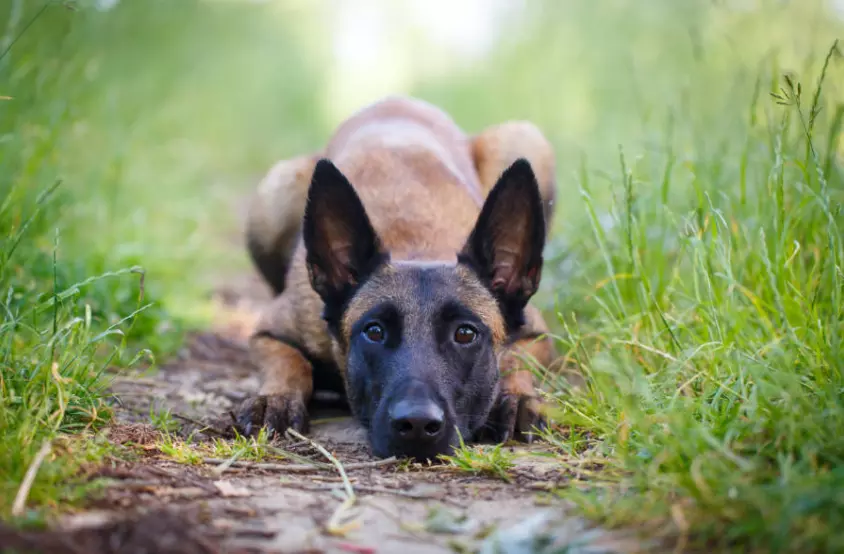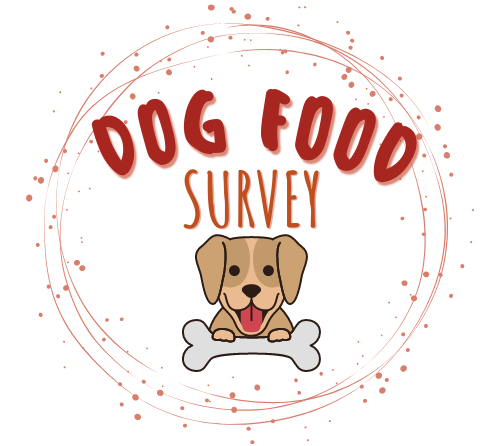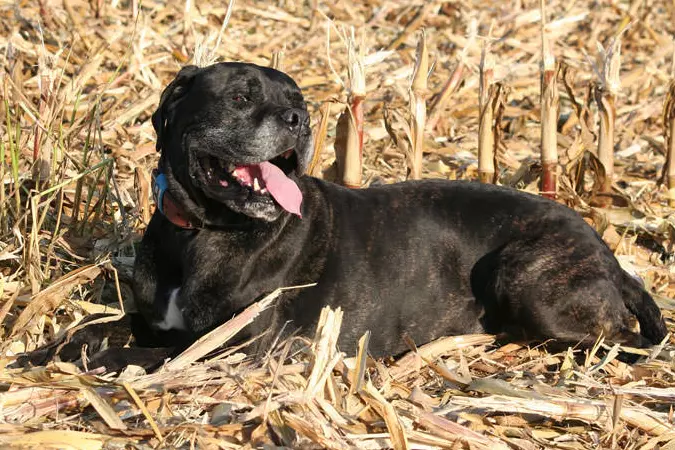Belgian Malinois Food Allergies
Table of Contents
You want your dog to be healthy and happy. You want to make sure he doesn’t have any life-threatening allergies.
Belgian Malinois dogs are prone to having food allergies because their digestive system is so sensitive that they cannot properly digest many foods. They can even suffer from vomiting, diarrhea, and other unpleasant symptoms. You want to keep your dog away from all the foods she is allergic to.
When selecting the best food for your pet, you should know that not all foods are suitable for all dogs. Some are better for certain breeds; others are better for others.
This blog shares information on Belgian Malinois food allergies. The focus is on the symptoms, what causes them, and how to avoid them. So let’s start reading:
Why does the Belgian Malinois dog develop an allergy?
It is unclear why some dogs develop a food allergy, and others do not. There are several possible causes, including:
1. The dog has a genetic predisposition to develop allergies.
2. The dog has been exposed to a protein allergen in its environment or has consumed protein-containing food.
3. The dog has been exposed to an antigen to which the dog has developed a tolerance, resulting in an allergic response.
How could I tell if my Belgian Malinois is allergic to certain foods?
To illustrate the allergy, I’ll start with the most common symptoms.
1. Diarrhea
This is the clearest and initial indicator of an allergy. It is also the most common indication. Diarrhea is the dog’s body’s way of saying, “there is something wrong with my food.”
It can also signify worms, parasites, infection, or pancreatitis, among other things.
2. Vomiting
This is the second most frequent allergy symptom. Vomiting is a sign that something is wrong with the dog’s digestive system.
It can be a sign of a virus, infection, food poisoning, or other problems.
3. Sneezing
This is the third most common symptom of an allergy. Sneezing is usually accompanied by a runny nose and is a sign that the dog’s immune system is working overtime to get rid of the allergen.
4. Weight loss
Dogs with food allergies lose weight and become less active. This is because they are not able to digest their food properly. They also may become lethargic.
5. Loss of appetite
Dogs with a food allergy may not be interested in eating. They may start to vomit, sneeze, or lose weight. If your dog refuses to eat, it might indicate that they have an allergy.
6. Fainting
This is also the most common symptom of an allergy. If your dog has a very strong reaction to the food, it can happen.
What kind of food should we avoid?
As the pet owner, you should know the following are some dog food that should avoid for Belgian Malinois food allergies:
Fish
Fish is a high-protein food that may be a valuable addition to a dog’s diet. However, some dogs are allergic to fish and can have serious reactions. If your canine friend is allergic to fish, you should consult with your veterinarian about possible substitutes.
Milk
Milk can cause an upset stomach in some dogs. If your dog is allergic to milk, you should talk to your veterinarian about the best substitute for your dog’s milk.
Since milk allergy can be very serious, it is important to ensure that your dog’s allergies are under control before introducing milk to your dog.
Shellfish
Shellfish are a common cause of food allergy in dogs. Shellfish can cause serious reactions in dogs who are allergic to it. If your dog seems to have a shellfish allergy, stay away from it and visit your veterinarian.
Corn
Corn is a typical dog food component. If your dog has corn to peanuts, keep them away from him to keep the allergies at bay.
Eggs
Eggs are also common in pet food and can cause an upset stomach in some dogs. If your dog is an allergy to eggs, you should talk to your veterinarian about the best substitute for your dog’s egg.
Peanuts
Peanuts are a common ingredient in pet food and can cause an upset stomach in some dogs. If your dog seems to be an allergy to peanuts, avoid giving him to control the allergy.

3. How to feed healthy food to Belgian Malinois dogs?
Dogs who have food sensitivities or digestive problems often need to have a specially formulated diet for their needs. Some commercial dog foods are also formulated for dogs suffering from allergies. The following are some best dog food ingredients for providing proper nutrition to dogs:
1. Protein
A particular quantity of protein is required in the diet of dogs to prevent skin allergies. You can also give protein in the form of meat as raw food to your dogs. Pets suggest a minimum of 1.5 to 2.5 percent protein. However, most dogs require more protein than other dog breeds.
2. Fiber
A specific quantity of fiber is required in the diet of dogs regularly. Fiber helps clean out the intestines and makes the dog’s digestive system more efficient. Nevertheless, too much fiber can lead to constipation.
3. Water
Water is essential for dogs. They may develop kidney problems if they do not drink enough water. When they do not drink too much water, their urine will be more concentrated.
4. Fat
Dogs need a certain quantity of fat in their daily diet to gain healthy weight. The amount of fat a dog needs depends on its size. Smaller dogs need a lower percentage of fat in their diet, while larger dogs need a higher fat percentage.
5. Omega-3 fatty acids
The most common supplement to give your dog is omega-3 fatty acids. This is found in fish oil, flaxseed oil, and other plant sources. They are very beneficial for a dog’s healthy skin and shiny coat. You can get omega-3 fatty acids as supplements.
6. Zinc
Another essential nutrient that dogs need is zinc. This is found in beef, chicken, and other meat. You can also get it in supplements.
7. Carbohydrates
Dogs need a certain amount of carbohydrates in their diet. Carbohydrates are the main source of energy for dogs.
8. Vitamins and minerals
A specific number of vitamins and minerals are required in the diet of Belgian Malinois. Vitamins and minerals are necessary for the proper functioning of the dog’s body.
9. Calcium
Dogs need a certain amount of calcium in their diet. Calcium helps to build strong bones and teeth.
Is there any treatment for Belgian Malinois dog allergies?
The following are treatments to prevent your Belgian Malinois from allergies:
Antihistamines:
Environmental allergies cause various kinds of allergies and infections in dogs. Most Belgian Malinois will be treated with antihistamines. If you notice symptoms like your dog licking his paws and looking at them a lot, this may indicate that he has an allergy reaction. Make sure to have your dog’s allergies tested by your veterinarian.
Avoidance
Allergic dogs should keep away from the allergen. This may mean avoiding carpeting, pollen, and dust. Allergy dogs should also keep away from other dogs, cats, and animals with similar allergens. For example, if your dog has an allergy to pollen, you may need to keep him indoors when the pollen is in the air.
Topical Treatment
If your dog has a serious pollen allergy, you might be able to help him by spraying him with a combination of oil and water.
Preventive Medication
Some dogs are treated with preventive medication before they become allergic. This helps the dog’s immune system to become less sensitive to the allergen. This means that the dog will be less likely to react to the allergen.
Bathing
Bathing your dog is also a good way to remove allergens from his coat. However, if you are bathing your dog, make sure you rinse your dog thoroughly to avoid the spread of bacteria and dirt.
Hypoallergenic diet
Some types of food cause allergies in Belgian Malinois. Wheat, for instance, may cause a dog to respond. Provide your dog a hypoallergenic food that contains high-quality ingredients that avoid allergies.
These diets are made from protein sources that are less likely to cause a reaction in dogs. For example, you can use lamb or fish instead of beef or pork.
Vaccines
There are vaccines available to help prevent your dog from getting allergies. The most common vaccine is the vaccine for parvovirus. However, vaccines are also available to prevent your dog from getting allergies to fleas, ticks, and other allergens.
Some dogs are also treated with antihistamines after they are exposed to allergens.
Frequently Asked Questions
Why are some dogs allergic to specific foods?
Dogs are highly allergic to certain types of food, and this is not uncommon. Their sensitivity to a particular food varies depending on the dog’s breed, life stages, diet, and overall health. In addition, some dogs are more reactive than others. Some examples of food allergies include wheat, soy, and milk. If your dog has these allergies, you should carefully feed him these items to avoid any adverse effects. It is also important to find out his triggers and make sure he avoids them. Some examples of food allergies include wheat, soy, and milk. If your dog has these allergies, you should carefully feed him these items to avoid any adverse effects. It is also important to find out his triggers and make sure he avoids them.
Is our Belgian Malinois hypoallergenic?
Belgian Malinois are not hypoallergenic, but they are friendly, energetic dogs that make excellent guard dogs. The breed is generally easygoing and adaptable to different living conditions and environments.
What are the average dietary requirements of Belgian Malinois?
According to the USDA Nutritional standards for Dogs and Cats, Belgian Melinois’ daily dietary requirements are as follows:
4.5 lbs: 16-20% protein, 4-8% fat, 2-4% saturated fat, 4.5-6% fiber, 3.5-5% calcium, 0.75-1.25% phosphorus, 7.5-10% potassium, 3-5% zinc, 1.7-2.8% copper, 0.3-0.4% iodine, 5-6% selenium, 0.5-0.8% manganese, 1.5-2.2% iron, and 0.5-0.6% phosphorus.
Why should we give our Belgian Malinois a daily dose of probiotics?
Probiotics are bacteria and yeasts that are found naturally in foods. They help to maintain good digestive health and promote a healthy immune system. This is why they are widely used in livestock farming to improve the overall health of farm animals. However, dogs are omnivores, consuming both plant and animal matter. Hence, they also benefit from taking probiotic supplements to ensure that they have healthy gastrointestinal health.
Which is the most frequent canine food allergy?
Food allergies are one of the most common problems in dogs, but they aren’t the only ones. Allergies can cause a wide variety of skin conditions and diseases. Some of the most common allergies include those caused by yeast, pollen, mold, dust mites, and fleas. If pet owners notice excessive scratching, licking, skin infections, ear infections, sneezing, rubbing, or scratching, contact your veterinarian immediately for a thorough examination and treatment.
What is the difference between food allergy and food sensitivity?
There are several differences between food allergy and food sensitivity in dogs. A food allergy generally occurs when a dog has experienced an immediate reaction to a specific type of food. While food sensitivity will manifest over a period of time, as opposed to an immediate reaction. It’s crucial to note that most dogs develop food allergies. It’s common for puppies to have it, while older dogs are more prone to developing food sensitivities.
Conclusion:
Belgian Malinois is one of the most loving dog breeds. They are often used as therapy dogs because they are gentle and loving. Although Belgian Malinois are known for their gentle nature, they can also be stubborn and aggressive.
Because of their intelligence and loveable personality, they are prone to food allergies. Here are some signs your dog may have a food allergy: skin rashes, diarrhea, vomiting, and itching.
It’s important to identify the type of food causing the allergic reaction so you can treat it correctly by providing a limited ingredient diet. If you observe any of these signs, contact your veterinarian immediately.
- 1xbet официального Сайт Казино Игровыми Автоматами 1хбет - April 17, 2024
- Бездепозитные Бонусы За Регистрацию и Онлайн Казино 202 - April 9, 2024
- Yeni Deneme Bonusu Veren On Line Casino Siteler - January 31, 2024








